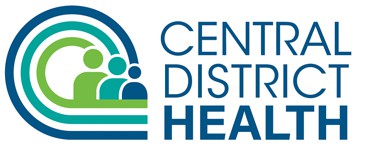Summary
Health authorities in China, the United States, and other countries worldwide continue to investigate an outbreak of novel coronavirus (2019-nCoV), with nearly 8,000 confirmed infections reported to date, most of them in China. The first human-to-human transmission in the United States was announced this week, in a household contact of a person with confirmed 2019-nCoV infection who had traveled from Wuhan. 2019-nCoV is not spreading widely within communities in the United States at this time. The World Health Organization declared the 2019-nCoV outbreak a Public Health Emergency of International Concern yesterday. The Centers for Disease Control and Prevention has enhanced screening and education of travelers from all of China at all 20 CDC quarantine stations. These travelers will receive a health alert notice card (https://www.cdc.gov/coronavirus/2019-ncov/travelers/communication resources.html) and if they become ill, are requested to give healthcare providers this card.
Recommendations for Healthcare Providers
- Obtain detailed travel history on patients with fever and acute respiratory illness.
- Report “patients under investigation” (PUI) for 2019-nCoV infection to your public health district or the Bureau of Communicable Disease Prevention Epidemiology Section (208-334-5939) immediately.
This is a rapidly changing situation and criteria for a PUI in association with the outbreak of 2019-nCoV have changed since our last 2019-nCoV health alert. Clinical features and epidemiologic risk factors have been revised. See https://www.cdc.gov/coronavirus/novel-coronavirus-2019/clinical- criteria.html for current criteria when evaluating a patient.
Contact your public health district at 208-327-8625, or the Bureau of Communicable Disease Prevention Epidemiology Section at 208-334-5939 if you have questions about clinical presentation, travel history, or exposure criteria. - Notify infection control personnel in your healthcare facility immediately if you identify a PUI for 2019-nCoV.
- Consult with your public health district before collecting specimens for 2019- nCoV testing. Specimens will be tested for 2019-nCoV on PUI only. Concurrent influenza testing is recommended. For 2019-nCoV testing: Collect lower respiratory, upper respiratory, and serum specimens as soon as possible once a PUI is identified regardless of when symptoms began. Additional specimen types (e.g., stool, urine) may be collected and stored. Do not wait for results on testing for other respiratory pathogens. Contact the Idaho Bureau of Laboratories (IBL) at 208-334-2235 for instructions on specimen collection and submission. Contact IBL or see https://www.cdc.gov/coronavirus/2019-nCoV for additional guidance.
- Take precautions. PUI should wear a facemask as soon as they are identified. Evaluate PUI in a private room with the door closed, ideally an airborne infection isolation room. Healthcare personnel entering the room should use standard precautions, contact precautions, airborne precautions, and use eye protection (e.g., goggles or a face shield). See https://www.cdc.gov/coronavirus/2019 nCoV/infection-control.html for detailed infection prevention and control recommendations and updates.
See https://www.cdc.gov/coronavirus/2019-ncov/index.html for more information and updates as the situation evolves.

